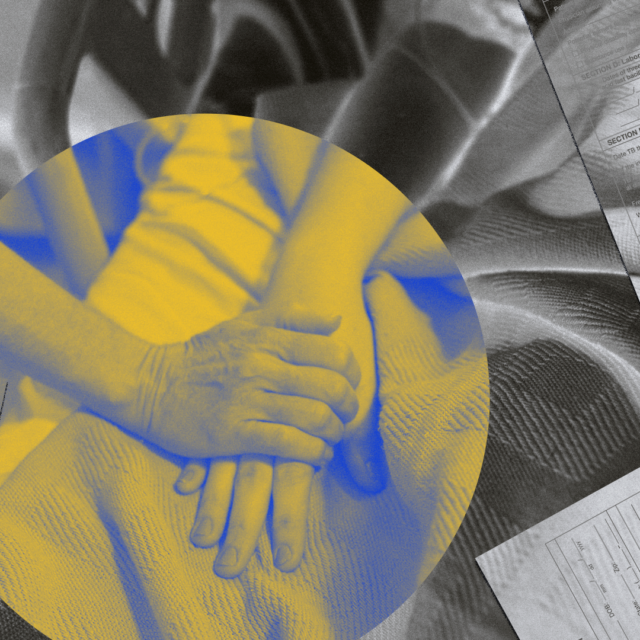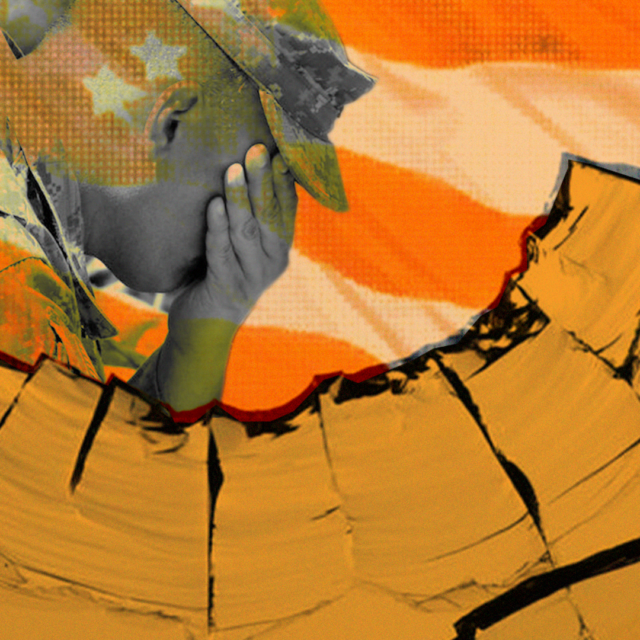The SHARE Act Is Dangerous and Unnecessary
It Would Make It Easy to Buy Silencers Illegally
Bottom Line: Silencers pose a significant danger in the wrong hands, making it harder for bystanders or law enforcement to identify and react quickly to gunshots. In an active shooter situation, for example, hearing and recognizing a gunshot can be a matter of life and death. But radical legislation—misleadingly called the “Hearing Protection Act,” and now part of the SHARE Act—would make it easy for criminals to obtain silencers by removing silencers from the National Firearms Act (NFA). The NFA has kept silencers out of criminal hands for over eighty years, without blocking access for law-abiding citizens. The gun lobby presents this legislation as an attempt to protect shooters’ hearing, but silencers are not the most effective or the safest way to do so. Widely available ear protection products work better than silencers to protect hearing and safety—which is why the U.S. military relies on them, not silencers, to protect soldiers’ hearing. Lawmakers should join law enforcement officers and major law enforcement organizations in rejecting the Hearing Protection Act and the gun lobby’s dangerous pursuit of profit over safety.
The Hearing Protection Act would enable felons, domestic abusers, and other people with dangerous histories to buy silencers with no background check whatsoever.
- The NFA, which was passed in 1934 to fight organized crime, requires all buyers of silencers, machine guns, and other especially dangerous weapons to pass criminal background checks and comply with other common-sense safety provisions.1Like machine gun buyers, silencer buyers must submit fingerprints and a photograph. Local police or sheriffs are notified of the sale. Federal law enforcement keeps a record of all purchases. Any loss or theft must be reported to law enforcement. 26 U.S.C. § 5812(a); 27 CFR 479.86. These provisions apply not only to automatic firearms and silencers, but also to certain short-barreled firearms and other especially dangerous weapons. Note that automatic firearms manufactured after May 1986 generally may not be possessed or transferred.
- The legislation would strip this requirement for silencers. And — for the first time in 80 years — felons, domestic abusers, and people with dangerous mental illnesses would be able to buy silencers with no background check, simply by finding an unlicensed seller.
- Removing silencers from the NFA would undermine the law’s success in keeping the public, and law enforcement officers, safe from crime. Research shows the use of silenced firearms in crime is rare,2Clark, Paul A. “Criminal Use of Firearm Silencers.” Western Criminology Review 8, no. 2 (2007): 44–57. http://bit.ly/2kf7emZ. demonstrating the NFA works to keep silencers out of the wrong hands.
Silencers in the wrong hands create serious public safety risks.
- The loud and distinctive noise that a gun makes is one of its most important safety features: when people hear it, they realize they may need to run, hide, or protect others.
- In mass shootings, being able to hear and identify the gunshots can mean the difference between life and death.
In 2013, Southern California law enforcement officials and their families were targeted during a 10-day shooting spree, in which the gunman relied on silencers to avoid detection from law enforcement. Four people, including two police officers, were shot and killed.3All details of this incident provided via the Police Foundation report on the incident, “Police Under Attack: Southern California Law Enforcement Response to the Attacks by Christopher Dorner.” http://bit.ly/2mBt7KK.
- Silencers gave the gunman a tactical advantage at every stage—from reducing the likelihood that he would be caught at the scene of his first crime to prolonging his final firefight with police, ten days later.
- The gunman first killed a young couple —the daughter of a former law enforcement official and her fiancé—execution-style, firing 14 shots at them while they sat in their car. Because he used a silencer, no witnesses heard the shots, and he made his getaway without being stopped. Days elapsed before police identified him.
- Over the next several days, the gunman used a silencer to shoot at law enforcement officers in patrol cars without giving his position away. One officer was killed, another seriously wounded, and a third grazed with a bullet.
- Police finally tracked the gunman to a mountain cabin, where he used a silencer-equipped rifle to ambush responding officers with gunfire, killing one. The silencer made it difficult for officers to pinpoint the origin of the shots, giving the gunman a tactical advantage.4Goffard, Christopher, Rubin, Joel, and Streeter, Kurt. “The Manhunt for Christopher Dorner.” Los Angeles Times, December 8, 2013. http://graphics.latimes.com/christopher-dorner-manhunt/.
Silencers make it harder for police and first responders to react quickly to gunshots, with potentially deadly results.
- The distinctive sound of a gunshot alerts law enforcement to tens of thousands of shootings per year. Without those alerts, law enforcement and medical care can be delayed.5Goudie, Chuck. “Are Gun Silencers a Threat to Safety?” ABC7 Chicago, May 1, 2015. http://abc7.ws/1JR6euw.
- It’s often the sound of gunshots that prompts calls to 911. In Washington, DC, for example, 911 operators receive over a thousand calls every year reporting the sound of shots fired.6Carr, Jillian B., and Jennifer L. Doleac. 2016. The Geography, Incidence, And Underreporting Of Gun Violence: New Evidence Using Shotspotter Data. Brookings. https://www.brookings.edu/wp-content/uploads/2016/07/Carr_Doleac_gunfire_underreporting.pdf.
- ShotSpotter, a tool which recognizes the sound of gunshots, alerted law enforcement to nearly 75,000 gunfire incidents in 72 cities in 2015: That’s an average of one every 7 minutes.7“Shotspotter National Gunfire Index 2016”. 2017. Shotspotter.com. http://www.shotspotter.com/2016NGI These tools would be significantly undermined by the widespread use of silencers.8Buckley, Cara. “High-Tech “Ears” Listen for Shot.” The New York Times, November 20, 2009. http://nyti.ms/2lCNtTm.
- These alerts matter because quick access to medical care saves lives. Shorter 911 response times increase a victim’s likelihood of survival,9Blackwell, Thomas H., MD, Kaufman, Jay S., MD, “Response Time Effectiveness: Comparison of Response Time and Survival in an Urban Emergency Medical Services System”, Academic Emergency Medicine, 2002, 9(4), 288-295. and have been estimated to explain up to 56% of the decrease in homicides over the last 50 years.10Stratmann, Thomas, and David Chandler Thomas. 2016. “Dial 911 For Murder: The Impact Of Emergency Response Time On Homicides”. George Mason University. doi:10.2139/ssrn.2843329. https://papers.ssrn.com/sol3/papers.cfm?abstract_id=2843329.
Silencers are not a “hearing protection” issue. The gun lobby claims their efforts are intended to protect hunters’ hearing, but silencers are not the most effective or the safest way to do so.
- Silencers make hunting more dangerous. Silencers put hunters—and bystanders— at risk. As a Maine Warden Service officer noted, “[g]enerally, discharge of a firearm causes a loud report that all in the immediate area can hear. This cautions those in the area, which can prevent possible safety issues.”11Ohm, Rachel. “Maine’s New Hunting Silencer Law Draws Muted Fire as Deer Season Begins.” Centralmaine.com, October 31, 2015. http://bit.ly/2lCMbaX.
- Ear protection products work better than silencers to protect hearing and safety—which is why the U.S. military relies on them, not silencers, to protect soldiers’ hearing.12Hodgkins, Kelly. “The US Army’s New Earbuds Give Soldiers Tunable Hearing, Protection from Loud Noises.” Digital Trends, June 8, 2016. http://bit.ly/2kUyLXQ. Widely available ear protection products muffle loud noises and magnify sounds that users want to hear, such as the movement of an animal, or of another person.13Alberts, Kristin. “A Guide to Buying Electronic Ear Muffs.” Guns.com, August 22, 2013. http://bit.ly/2lCEdi1.
- It’s not public health that would benefit from this policy, it’s the silencer market —one of the fastest-growing sectors within the firearm industry.14Weingarten, Dean. “SilencerCo Leads Huge Growth in USA Suppressor Market.” Accurateshooter.com, June 12, 2016. http://bit.ly/2ki7Cw4.
Law enforcement officers and major law enforcement organizations have repeatedly opposed the rollback of silencer safety laws.
- The Police Foundation, the Police Executive Forum, the Major Cities Chiefs Association, and other national police associations oppose deregulating silencers, stating that “these proposals, if enacted, would be put police officers and the public at grave risk.”15National Law Enforcement Partnership to Prevent Gun Violence. Statement of Chairman Jim Johnson on H.R. 367 and S.59, the Hearing Protection Act Of 2017. https://www.lepartnership.org/wp-content/uploads/2017/01/LEP_Statement-on-The-Hearing-Protection-Act-of-2017_3-10-17.pdf.
- At the state level, groups like the Minnesota Chiefs of Police Association, the Illinois Association of Chiefs of Police, the Montana Game Warden Association, and the Maine Warden Service have all recently opposed bills to relax silencer laws.16Cook, Mike. “Use of Firearm Suppressors in Minnesota Gets Approval from House Committee.” Minnesota House of Representatives, March 12, 2015. http://bit.ly/1FURUw3 ; Jess, Steve. “Rifle Suppressor Bill Favored By Some Hunters, Opposed By Game Wardens.” Montana Public Radio, March 23, 2015. http://bit.ly/2kE860z ; see also notes 3, 6 and 7.
- David Chipman, a retired 25-year federal law enforcement veteran — as well as a sportsman and a gun-owner — called this legislation “a threat to public safety” because silencers can confuse police and the public during a shooting and allow an active shooter to conceal his or her location.17Rott, Nathan. “Debate Over Silencers: Hearing Protection Or Public Safety Threat?” wamu.org, March 21, 2017. http://bit.ly/2narbaN.
The Hearing Protection Act would make it harder for law enforcement to solve crimes.
- Under the bill, the Justice Department would be forced to destroy existing records that can help law enforcement officers solve gun crimes, catch dangerous criminals, and protect communities.
The Hearing Protection Act would undermine state silencer laws, and block states from enacting new ones.
- 18 states explicitly rely on federal silencer laws to keep silencers out of the wrong hands,18CT, GA, IA, LA,, MI, MN, MS, MO,, NV, NC, ND, OH, OK, OR, SD, TX, WA, & WI. while laws in three other states refer to the federal laws directly.19ME, MT,& VT. The Hearing Protection Act would undermine these existing state laws, and block state and local policymakers from protecting their communities by enacting new protections.20Laws in 9 states – CA, CO, DE, HI, IL, MA, NJ, NY, and RI – and the District of Columbia prohibit civilian possession of silencers.
Everytown Research & Policy is a program of Everytown for Gun Safety Support Fund, an independent, non-partisan organization dedicated to understanding and reducing gun violence. Everytown Research & Policy works to do so by conducting methodologically rigorous research, supporting evidence-based policies, and communicating this knowledge to the American public.



